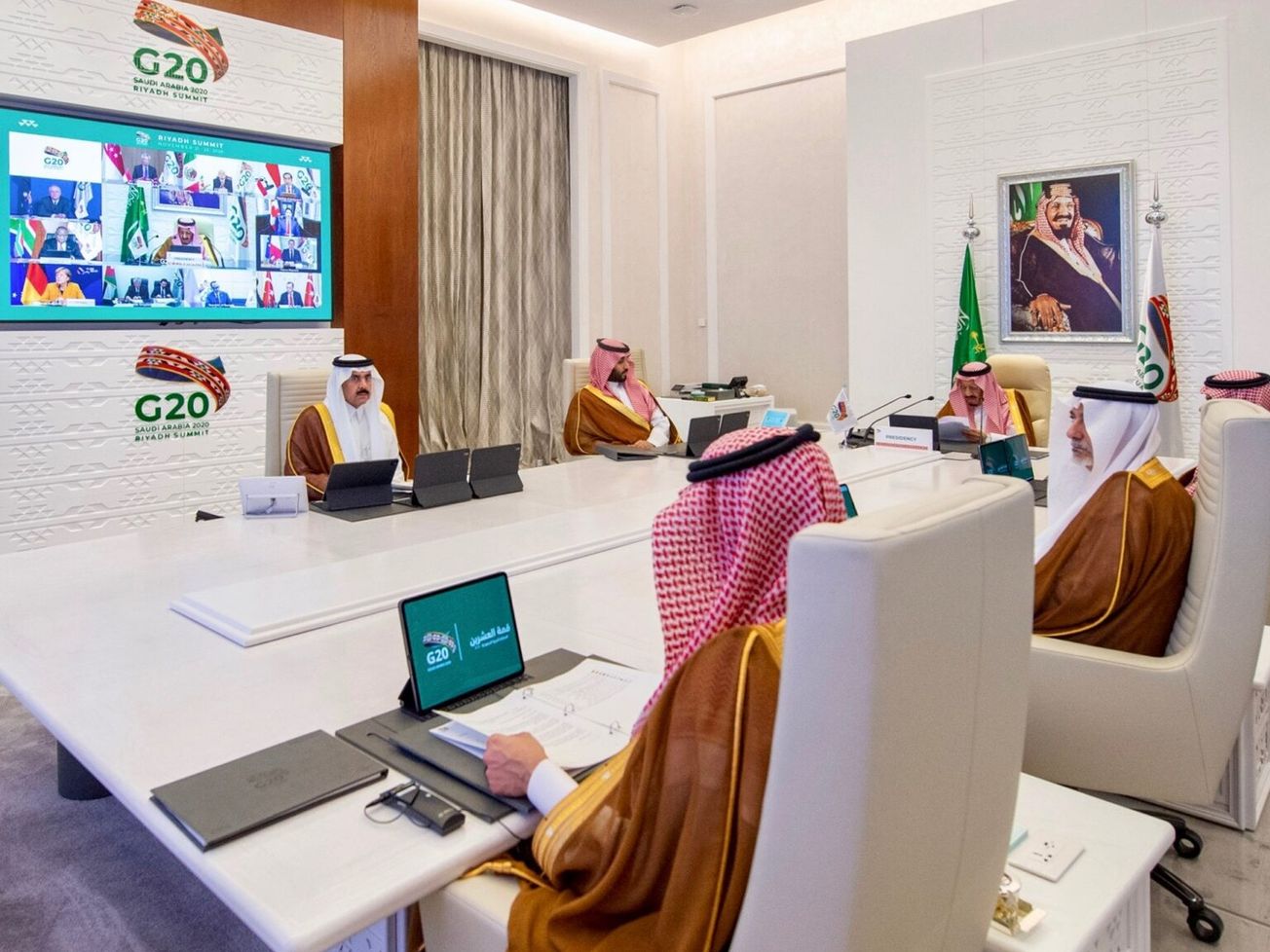Leaders of the Group of 20 major economies ended a summit hosted by Saudi Arabia on Sunday with a joint promise to make COVID-19 vaccines affordable and equally accessible for all and to support the U.N. health agency.
Though the two-day virtual summit was an opportunity for G-20 leaders to close ranks around fighting the coronavirus pandemic that has killed more than 1.38 million people worldwide, it also highlighted how isolated the United States has become under President Donald Trump's "America First" policies. Just days after the United States surpassed a quarter million deaths from COVID-19, Trump missed part of the summit to play golf.







